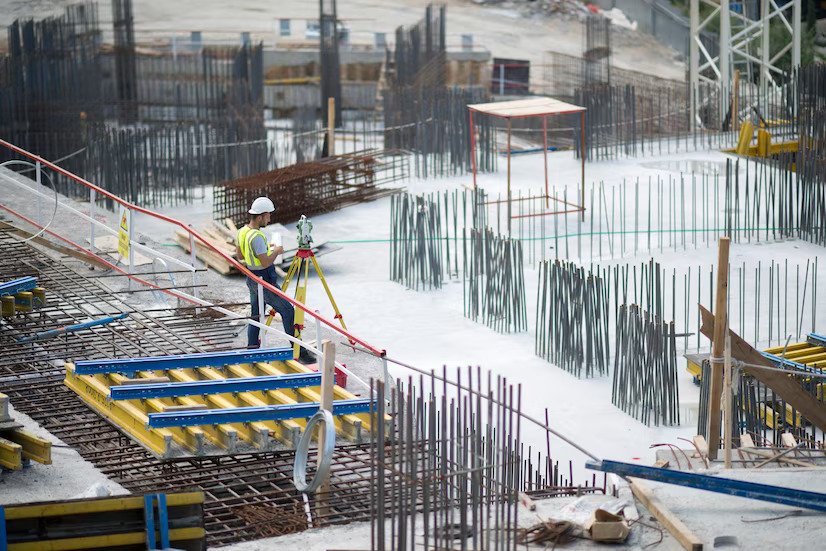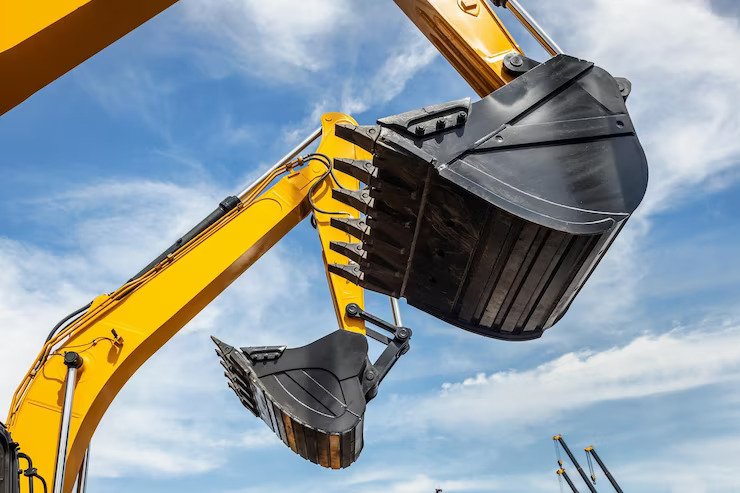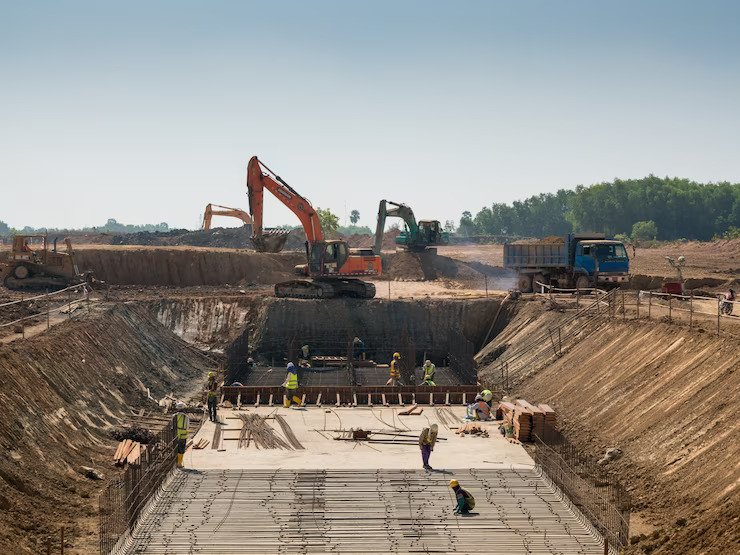How To Choose The Right Construction Equipment For Your Project
4 Mins Read
Published on: 06 April 2023
Last Updated on: 31 March 2025

toc impalement
Construction projects can be daunting and overwhelming, especially when it comes to choosing the right equipment for the job.
It might be difficult to decide which tools are required for your specific job when there are so many options on the market.
Choosing the wrong equipment choice can cause delays, safety risks, and financial loss. So, it’s crucial to be aware of the variables to take into account while picking the appropriate construction machinery.
Effective construction management requires planning and preparation. You must understand the project’s scope, the resources required, and the timeline. You can choose the right equipment that suits your needs based on these factors. Additionally, incorporating project management software for construction into your workflow can significantly enhance your management capabilities. With the right software, you can efficiently track project progress, manage tasks and deadlines, allocate resources effectively, and facilitate seamless collaboration among team members. By utilizing advanced project management software tailored specifically for the construction industry, you can streamline your operations, improve productivity, and ensure successful project delivery.
Construction equipment like heavy machinery, excavators and loaders, cranes and hoists, and finishing tools should all be considered when making your selection. You should also consider reading the scaffold tower safety guidelines to know the safety measures to take when constructing scaffolding.
How to Choose the Right Equipment for Your Project

Any project must have the appropriate construction equipment to succeed. Making a choice amongst the various types and models that are on the market can be difficult given the demands of your individual project. For instance, if you are constructing railways and adapting the infrastructure, then you know that high rail equipment is essential when in development.
- The first step in choosing the right equipment is to assess the requirements of your project thoroughly. Determine the size, scope, and duration of the work, and identify the specific tasks that need to be completed.
- Once you have a clear understanding of the project requirements, you can evaluate the different equipment options available to you. Consider factors like capability, efficiency, and reliability, as well as cost and availability.
- It is also crucial to ensure the compatibility of the equipment with your workforce, production methods, and industry regulations. Taking the time to choose the right equipment will not only ensure that your project runs smoothly but also provides a significant return on investment in terms of time and resources saved.
Common Construction Equipment

When starting a construction project, choosing the right equipment is crucial for its success. Familiarizing yourself with common construction equipment can help in the decision-making process.
Here are the most common types of construction equipment used in the industry:
- Heavy Machinery: Heavy machinery like bulldozers, tractors, skid steers, and backhoes are indispensable when it comes to major projects. They are used for a variety of tasks, including excavation, grading, demolition, and land clearing.
- Excavators and Loaders: Excavators and loaders are essential for digging and loading materials during the construction process. They come in various sizes, depending on the nature of the project.
- Cranes and Hoists: Cranes and hoists are used to lift heavy objects or materials from one place to another. This type of equipment is important for large-scale projects such as bridge construction and tall buildings.
- Drills and Breakers: Drills and breakers are used for breaking up concrete surfaces, which is essential when laying foundations or performing repairs on existing structures.
- Demolition Tools and Machines: Demolition tools and machines like jackhammers, shears, saws, and crushers are used to break down existing structures.
Most of the construction equipment mentioned above can be rented for short-term projects. However, depending on the length and complexity of the project, it may be more cost-effective to purchase the required items outright.
Investing in the Right Equipment for Your Project

When embarking on a construction project, investing in the right equipment is crucial for success. Before making any decisions, you’ll need to carefully consider the requirements of your project and choose equipment that can handle the specific demands of your job site.
Some factors to consider include the size and scope of the project, the terrain and soil conditions, and the types of materials that need to be moved or manipulated.
Investing in high-quality equipment will not only ensure that the work is completed efficiently and effectively but also minimize downtime and costly repairs.
As you evaluate various equipment options, be sure to compare features, specifications, and price points to choose equipment that will best meet the needs of your project. Moreover, research the company supplying the equipment to ensure they are reputable and can provide adequate support if needed. When it comes to large-scale demolition projects, heavy demolition contractors are essential for effectively and safely removing buildings and structures that provide a wide range of demolition services, including the dismantling of large industrial buildings, bridges, and other structures, using specialized equipment and techniques.
By taking the time to assess your project needs and carefully selecting the right construction equipment, you can save time and money on your next construction project. With quality construction equipment at your disposal, you can complete projects faster, with greater accuracy and better results.
In Conclusion
Choosing the right construction equipment for your project can be a daunting task, but it is essential for the successful and timely completion of the project. By considering the nature of the project, the required level of efficiency, and the budget, you can choose the right equipment that is capable of meeting your needs.
Additionally, keeping the equipment well-maintained and seeking advice from experts in the industry can help you get the most out of your investment. Ultimately, taking the time to evaluate your options and invest in the right equipment can save you time, money, and headaches down the road.
Read Also:


















Comments Are Closed For This Article